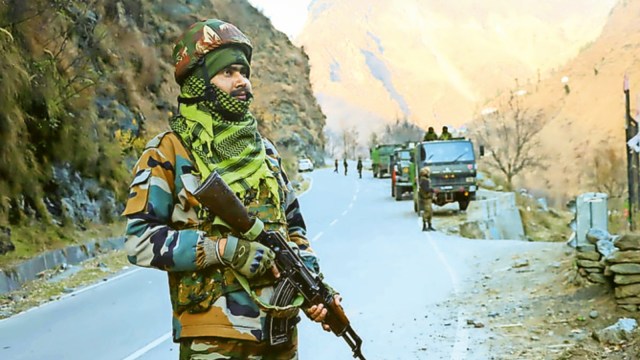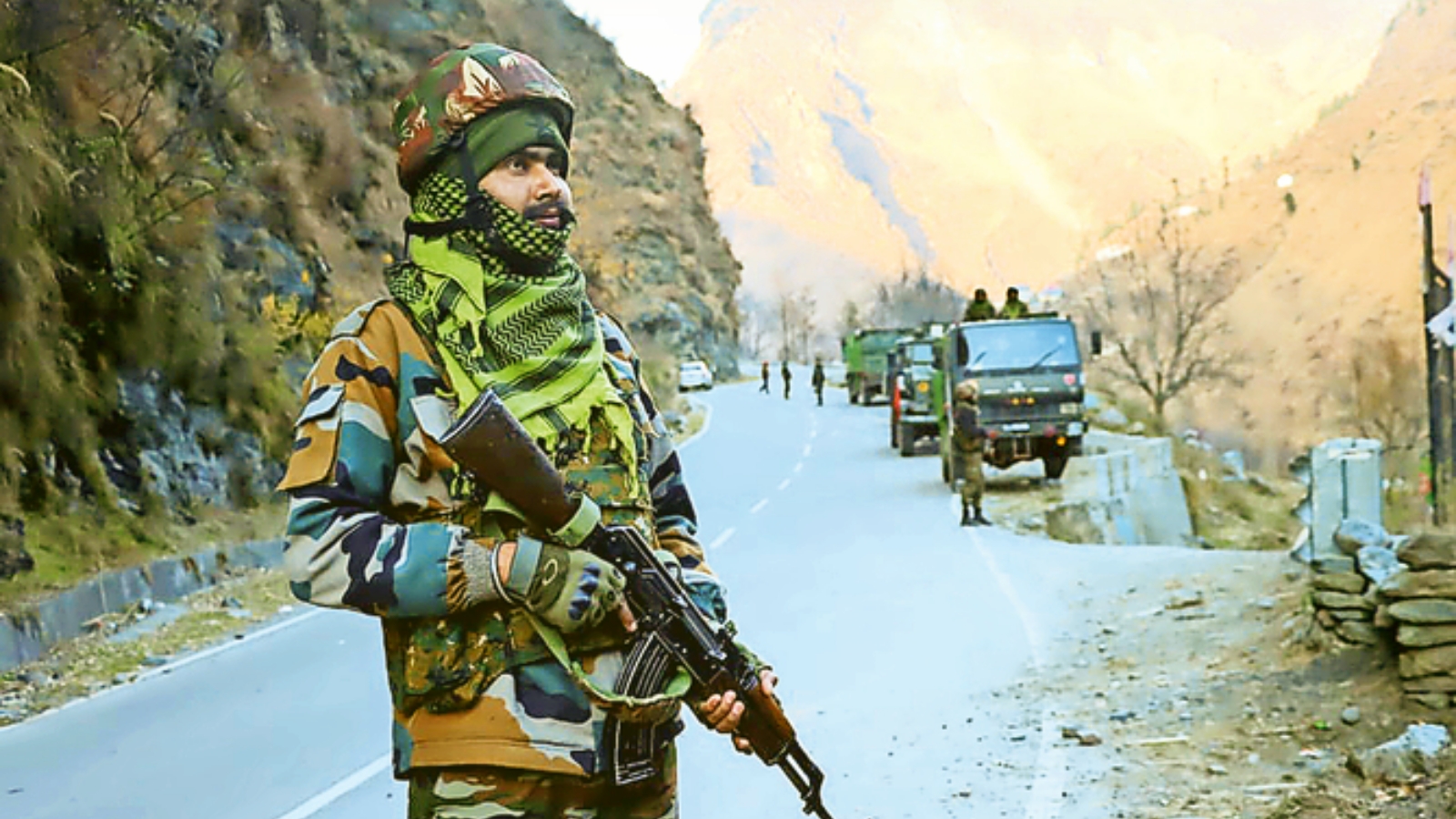
Seven security personnel have lost their lives to terror in Jammu and Kashmir in the last two days, close on the heels of four back-to-back terror attacks in June. Pakistan’s involvement has been reported. These tragic incidents are a reminder that after over four decades of suffering Pakistan-sponsored terror, and despite numerous peace initiatives and 10 years of avowed muscularity from us, our goal to put an end to it remains unaccomplished.
The attacks have brutally shattered the complacency of a section of our strategic community and in the minds of the public over Pakistan’s relative restraint on its terror apparatus in recent years. The intractable internal challenges faced by the Pakistani state, especially since 2021, and the changed geopolitical dynamics, have been seen as signs of its impending collapse. Though sporadic Pakistan-sponsored terror in Jammu and Kashmir never ceased, the sense of complacency has also been buttressed by a tendency among some to overestimate the impact of our muscular approach, including revocation of the special status of J&K, in largely containing, if not putting an end to, our Pakistan problem.
The fact, however, is this: Pakistan is nowhere close to a collapse. No major country desires this outcome in a highly volatile space with a nuclear arsenal. Second, there has been no sign of the Pakistani establishment abnegating terrorism. It has been merely calibrating and adapting its terror activity by, inter alia, taking out the notorious faces of its terror machine in response to the Financial Action Task Force scrutiny and our security/punitive measures. Third, the revocation of the special status of J&K has not put an end to the Pakistan dimension of our problem there. Pakistan’s questioning of the accession of J&K to India preceded the introduction of Article 370 in our Constitution and has outlasted its revocation. The terror attacks are an attempt to stay relevant to the situation in J&K and queer the pitch for the assembly election.
Certain factors on both sides make reduction of tension extremely difficult. The slogan “terror and talks cannot go together” tapped successfully into the deep and justified anger of the Indian public at Pakistan’s conduct in the run-up to our 2014 election. It was not followed as a policy uniformly. Sporadic open and behind-the-scenes bilateral contacts appear to have continued at least till early 2017; there are reports of quiet talks yet again towards the end of 2020, leading to restoration of the LoC ceasefire in February 2021. If there has been any additional quiet contact, we will not know. In any case, such contacts are useful in dealing with a complex and emotionally charged relationship. However, “terror and talks cannot go together” has become a buzzword in the public’s mind, thereby restricting the government’s elbow room for diplomacy with Pakistan.
There is a much bigger problem on the Pakistani side. It results not only from the traditional adversarial posture of its establishment, but also the tight corner that the then Imran Khan government, groping for an answer to India’s August 2019 move, pushed Pakistan into by suspending trade and calling upon India to reverse the move for any bilateral engagement. The sharp political polarisation in recent years, with an incarcerated but popular Khan pitted against the army-led establishment, has made a climbdown from this stand extremely difficult without a face saver. Thus, trade with India remains banned in spite of the pressure from a large segment of the industry to resume it. PML(N) leader Nawaz Sharif sent a conciliatory message on PM Modi’s re-election. But he is not in charge and, in any case, the final say on the matter is with the army. There is little indication, at least in public, of the army chief Asim Munir’s thinking on the subject.
This situation leaves us dependent entirely on our security apparatus, with our diplomatic machinery focused essentially on isolating Pakistan internationally (with limited success) and responding in kind to its anti-India rhetoric at international forums. The security-centric approach has obvious limitations in obtaining an enduring change in Pakistan’s behaviour towards us, especially in view of the growing China-Pakistan military nexus and the nuclear dimension. Therefore, Pakistan could be expected to continue with its terror attacks in J&K.
On assuming charge of his post a second time, External Affairs Minister S Jaishankar listed a solution to Pakistan’s years-old cross-border terrorism among the issues to be focused on by the new government. We will have to wait to see what steps the government takes, in addition to those in the last decade, to put an end to this menace. In the face of continued Pakistani terror, further strengthening of our counter-terror machinery, combined with a punitive approach, is an obvious answer. However, any punitive approach must be carefully calibrated in order not to result in cycles of tit-for-tat violence. Moreover, even as our security forces valiantly deal with the Pakistani threat, their effort must be supplemented by our diplomacy in continuing to look for opportunities to reduce the tension between the two countries. After all, besieged with multiple internal problems and a volatile western frontier, Pakistan could do with a calmer eastern frontier.
The writer is a former High Commissioner to Pakistan



